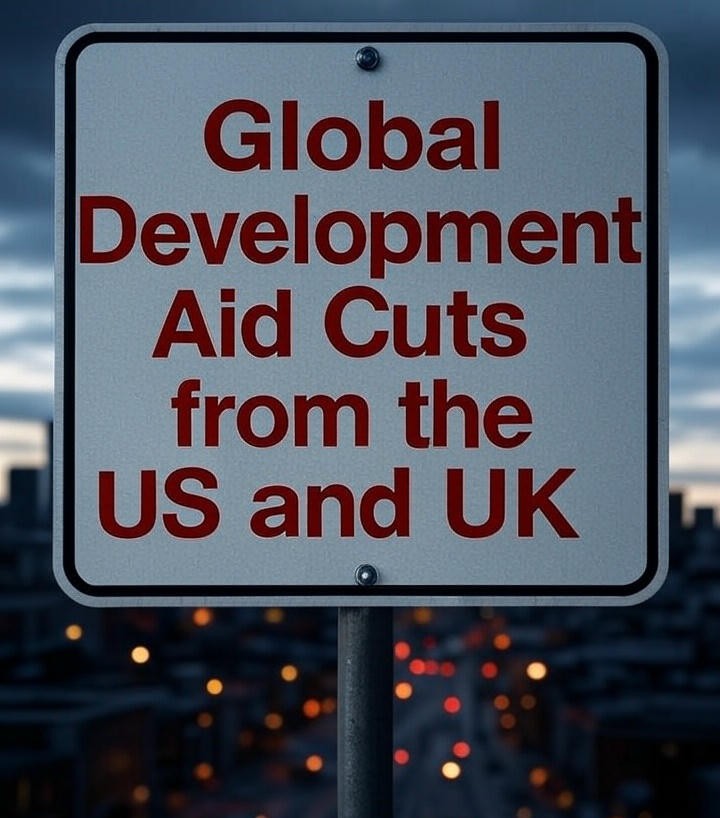In a recent warning UNDP (United Nations Development Programme) chief Achim Steiner raised serious concerns about global development aid. He pointed out that ongoing aid cutbacks especially from major donors like the United States and the United Kingdom could have dangerous consequences for many vulnerable countries. These cuts threaten humanitarian work weaken governance systems and increase the risk of political and regional instability.

What Is Global Development Aid?
Global development aid is money and support given by wealthy countries to help poorer nations improve their living conditions. This includes building schools, hospitals, roads and clean water systems. It also supports food aid, disaster relief and education programs.
These funds often come from governments in rich nations, such as the US, UK, Germany, Japan and others. The money is either given directly or through international organizations like the UN World Bank or charities working on the ground.
Why Are Countries Cutting Aid?
The world is facing multiple financial challenges. Countries like the US and UK have high inflation political tensions and budget deficits. As a result they are tightening their national budgets and reducing spending in areas seen as “non essential” including international development aid.
For example:
- The United Kingdom has reduced its aid spending from 0.7% of national income to 0.5%.
- The United States has been redirecting more funds to domestic issues such as immigration and infrastructure.
These cuts may help governments save money in the short term. But as Achim Steiner warns they could cause longterm harm around the globe.
Consequences of Aid Cuts
1. Less Humanitarian Help in Crisis Zones
Humanitarian agencies rely heavily on global aid to operate in conflict zones and disaster hit areas like Sudan, Gaza, Syria and Afghanistan. With reduced funding these agencies are forced to scale back operations.
This means:
- Less food and water for refugees
- Fewer medical supplies in war-torn regions
- Slower emergency responses to natural disasters
Lives could be lost simply because there is not enough money to respond in time.
2. Weaker Governance and Public Services
Aid also helps developing countries build better governance meaning stronger legal systems fair elections, anti-corruption agencies and public accountability. Without this support fragile governments may become more corrupt, inefficient or even collapse.
Poor governance leads to:
- Political unrest
- Increased crime and violence
- Lower foreign investment
- Discontent among citizens especially youth
In some regions, extremist groups take advantage of weak states to gain power and spread violence.
3. Higher Risk of Regional Instability
When aid is reduced fragile countries can descend into deeper problems. Neighboring nations may be affected too—through refugee flows, trade disruptions and cross-border violence.
For example:
- Economic collapse in a small African country might force thousands of people to flee into nearby nations.
- An unstable government in the Middle East could cause chaos across oil markets or increase migration to Europe.
Regional problems quickly become global issues. This is why global aid isn’t just charity it’s an investment in global peace and stability.
Who Will Suffer the Most?
The biggest impact of aid cuts will be felt by the poorest and most vulnerable:
- Children in need of vaccines or education
- Women and girls who rely on health clinics and safety programs
- Farmers who need help recovering from floods or droughts
- Refugees escaping war zones
In some cases aid programs are the only lifeline these people have. Cutting that lifeline could be the difference between survival and suffering.
UNDP’s Role and Response
Achim Steiner’s UNDP plays a major role in supporting sustainable development across 170+ countries. It works on climate change, poverty reduction, peacebuilding and gender equality.
The UNDP is now warning that it will be forced to downsize many of its initiatives if major donors pull back their support. This could mean:
- Delays in green energy projects
- Less support for rebuilding after conflict
- Slower progress toward the UN’s Sustainable Development Goals (SDGs)
A Call for Global Solidarity
Steiner’s message is clear: “Now is not the time to pull back. The challenges we face are global and the solutions must be global too.”
This means:
- Wealthy countries should reconsider drastic aid cuts and find a balance between domestic needs and global responsibility.
- Private companies and philanthropists can step up to fill gaps in funding.
- Citizens can raise their voices by supporting charities and pressing governments to act.
Conclusion
The warning from the UNDP highlights a growing problem that doesn’t get enough attention. Aid cutbacks may seem like small changes in national budgets but their global impact can be huge.
When development aid disappears hope disappears with it—for millions of people living in poverty conflict or disaster.
As we move forward in 2025 it’s more important than ever that the world does not turn its back on those who need help the most. Instead of cutting aid we should increase global cooperation to solve the world’s toughest problems together.
